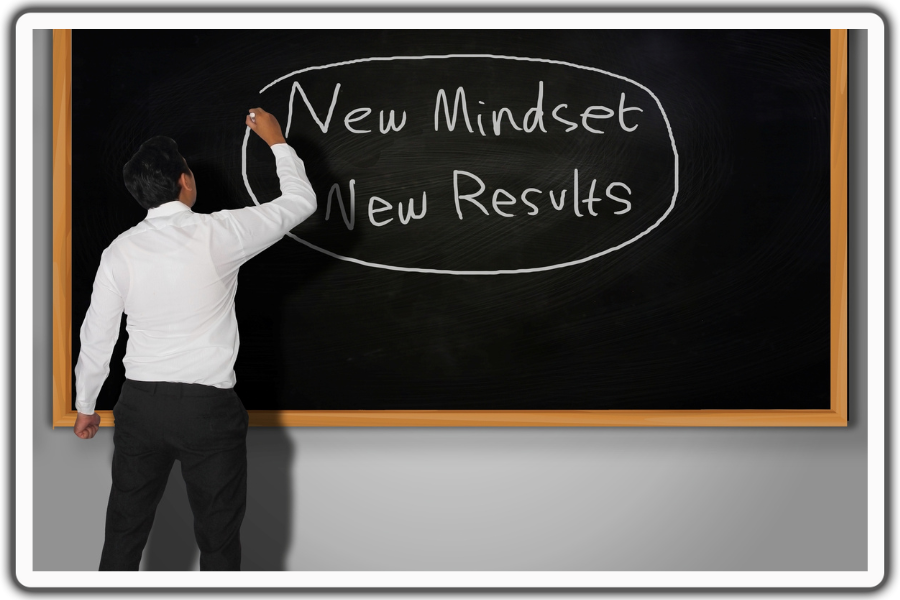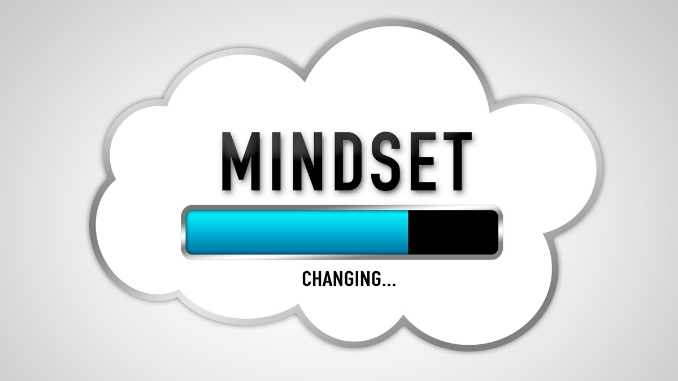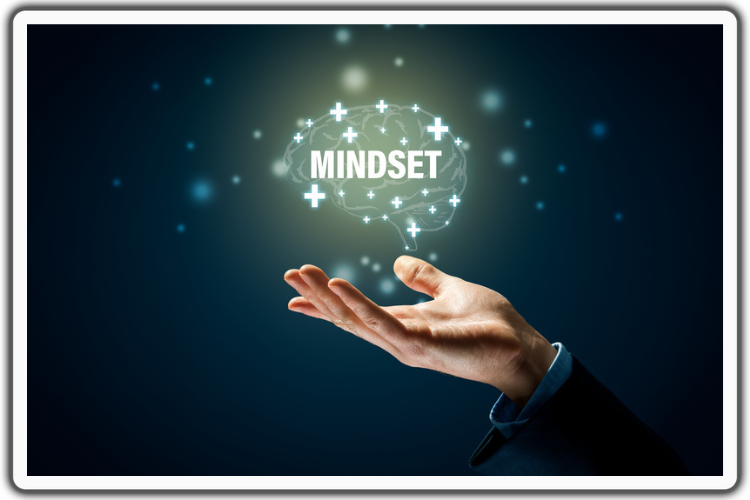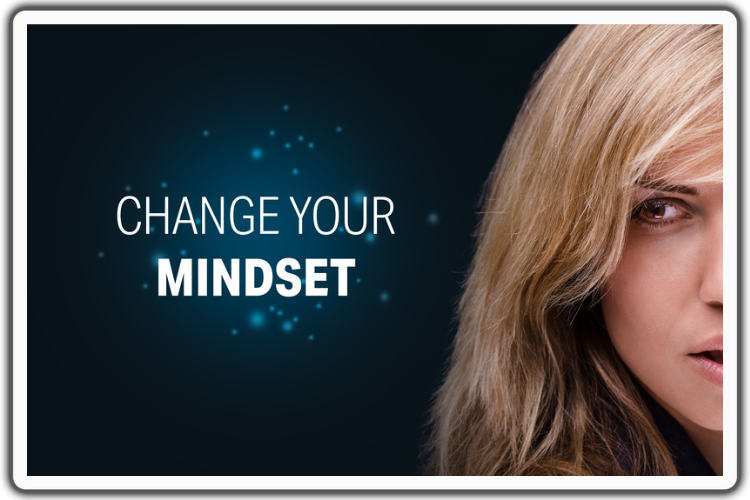
What Is a Mindset Coach and Why You Might Need One
So, what is a mindset coach?
- Helps you think of new ways to improve your life.
- They focus on changing how you see challenges, goals, and yourself.
- Gives you tools and advice to grow your confidence, break free from bad habits, and reach your dreams.
- They work with you to make a plan that fits your life and helps you move forward.
- They are like guides who believe you can achieve great things and help you see that.
- They're great for anyone wanting to improve in work, sports, or personal growth.
The Mindset Coach

A mindset coach is a professional who specializes in helping individuals develop a positive and growth-oriented mindset. They work with clients to identify limiting beliefs, negative thought patterns, and mental barriers that may be hindering personal, professional, or athletic progress.
Through various techniques and strategies, such as goal setting, visualization, positive affirmations, and cognitive restructuring, mindset coaches aim to shift their clients' perspectives towards more empowering and productive attitudes.
Mindset coaching is rooted in the understanding that the way we think significantly impacts our actions, outcomes, and overall quality of life. By fostering a mindset of growth, resilience, and adaptability, a mindset coach guides individuals to overcome challenges, achieve their goals, and realize their full potential.
This type of coaching is beneficial for anyone looking to improve their mental approach to life's obstacles, enhance performance in various areas, or simply cultivate a more positive and fulfilling life experience.
1. Identifies Limiting Beliefs
They help clients uncover and confront the negative or self-limiting beliefs that hinder their progress.
2. Promotes a Growth Mindset
Mindset coaches encourage clients to embrace challenges, learn from failures, and believe in their ability to grow and improve.
3. Sets Goals
They assist clients in setting clear, achievable goals that align with their values and aspirations.
4. Develops Positive Thinking
Through various techniques, mindset coaches teach clients to replace negative thought patterns with positive ones, fostering resilience and optimism.

5. Enhances Self-Awareness
They guide clients in becoming more aware of their thoughts, emotions, and behaviors, and how these can be adjusted for better outcomes.
6. Improves Mental Habits
Mindset coaches work with clients to develop healthy mental habits, such as gratitude, mindfulness, and self-compassion, which contribute to a more positive outlook on life.
7. Offers Accountability
They provide support and accountability, helping clients stay committed to their goals and the process of mindset transformation.
8. Teaches Stress Management
Mindset coaches equip clients with strategies to manage stress and anxiety effectively, improving their overall well-being and performance.
9. Facilitates Personal Growth
Through personalized coaching sessions, they help clients explore their potential and encourage continuous personal growth and learning.

10. Boosts Performance
For athletes or professionals, mindset coaches focus on techniques to enhance focus, performance under pressure, and overall productivity.
By working on these aspects, a mindset coach helps individuals shift from a fixed mindset, where challenges are avoided and failures are seen as limitations, to a growth mindset, where obstacles are opportunities for learning and self-improvement. This shift not only impacts their success in specific endeavors but also leads to more fulfilling and enriched lives.
What Makes A Good Mindset Coach?

A good mindset coach possesses a unique blend of qualities, skills, and attributes that enable them to effectively guide their clients toward achieving personal growth and a positive mindset shift. Here are key factors that contribute to making a good mindset coach:
1. Strong Empathy and Understanding
A good mindset coach can empathize with their clients, understanding their feelings and perspectives, which helps in building trust and a strong coach-client relationship.
2. Effective Communication Skills
They must be excellent listeners and communicators, able to convey complex ideas clearly and inspire their clients through motivational speaking.
3. Knowledge and Expertise
A thorough understanding of psychology, personal development principles, and coaching methodologies is essential for providing effective guidance and support.
4. Patience and Positivity

Coaching often requires patience as clients work through their challenges. A positive attitude can also be contagious, helping to uplift and motivate clients throughout their journey.
5. Non-judgmental Approach
A good coach provides a safe, open environment where clients feel free to express themselves without fear of judgment, facilitating honest and productive conversations.
6. Customized Coaching Strategies
They recognize that each client is unique and tailor their coaching techniques to meet individual needs, goals, and learning styles.
7. Commitment to Continuous Learning
The best coaches are committed to their own personal and professional development, staying updated with the latest research and techniques in mindset coaching.
8. Ability to Challenge and Encourage
A good mindset coach knows when to challenge their clients to step out of their comfort zones and when to provide encouragement and support.
9. Integrity and Professionalism
They maintain high ethical standards, ensuring confidentiality and professionalism in all interactions.
10. Results-Oriented Approach
While focusing on mindset, a good coach also keeps an eye on tangible outcomes, helping clients set and achieve specific, measurable goals.
11. Adaptability
The ability to adapt coaching strategies as clients grow and their needs evolve is crucial for maintaining progress and relevance.
12. Inspiring Confidence
A good mindset coach instills confidence in their clients, empowering them to believe in their own ability to change and achieve their goals.
A good mindset coach combines these qualities with a genuine passion for helping others, making a significant impact on their clients' lives by guiding them toward a more positive, growth-oriented mindset and helping them unlock their full potential.
Types of Mindset Coaching
Mindset coaching is a dynamic field that encompasses various approaches, each tailored to meet the unique needs of coaching clients. By focusing on the power of the mind, mindset coaching aims to transform personal and professional lives. Here are the primary types of mindset coaching, incorporating key concepts and techniques:

Life Coaching
This broad category focuses on personal development and achieving life goals. A Life coach uses mindset coaching techniques to help clients overcome barriers, fostering a positive outlook that encourages growth and success in various life aspects.
Business and Entrepreneurial Mindset Coaching
For those looking to become a mindset coach or own a mindset coaching business, this type emphasizes the development of traits necessary for entrepreneurial success, such as resilience, leadership, and innovation. Coaches with a business mindset help clients develop a strategic vision for their coaching skills, enabling them to build a successful coaching business.
Performance Coaching
This type focuses on enhancing individual performance, whether in sports, arts, or business. By employing mindset coaching techniques, coaches help clients optimize their potential, focusing on goal setting, motivation, and overcoming mental blocks.
Emotional Freedom Technique (EFT) Coaching
EFT is a psychological acupressure technique that helps individuals manage stress, anxiety, and emotional challenges. Mindset coaches trained in EFT guide clients through tapping exercises to release emotional blockages, fostering emotional health and well-being.
Neuro-Linguistic Programming (NLP) Coaching
NLP coaching uses techniques from neuro-linguistic programming to influence brain behavior through language and other types of communication. NLP coaches work with mindset coaching clients to reframe negative patterns, promoting positive change and enhancing personal and professional outcomes.
Health and Wellness Coaching
This type of integrated mindset coaching focuses on physical health and wellness. Coaches work with clients to develop healthy habits, positive attitudes towards health, and strategies for maintaining a balanced lifestyle.
Career Coaching
Career coaches utilize mindset techniques to assist clients in navigating career changes, improving job satisfaction, and achieving professional goals. Through mindset coaching, clients learn to overcome work-related challenges and align their careers with their personal values and aspirations.
Confidence and Self-esteem Coaching
Targeting the foundations of self-belief and self-worth, this coaching niche helps individuals build confidence and improve their self-esteem through mindset shifts and empowerment techniques.
Each type of mindset coaching leverages unique techniques, such as the Emotional Freedom Technique or Neuro-Linguistic Programming, to facilitate personal and professional development. Whether clients are seeking to enhance their lives, advance their careers, or even start their own mindset coaching business, these diverse coaching focuses offer tailored support and guidance. By mastering these approaches, those aspiring to become a mindset coach can equip themselves with a versatile toolkit to cater to a wide range of client needs, paving the way for a successful coaching business in the thriving field of mindset coaching today.
Benefits of Working with a Mindset Coach

Working with a mindset coach can offer numerous benefits that significantly impact various aspects of your life, from personal growth to professional success. Here are some of the key benefits:
1. Enhanced Self-Awareness
A mindset coach helps you gain deeper insights into your thoughts, beliefs, and behaviors, enabling you to understand what drives your actions and how to change them for the better.
2. Shift in Perspective
Coaching can shift your perspective from a fixed mindset, where you might see challenges as threats and failures as limitations, to a growth mindset, where challenges are opportunities and failures are lessons.
3. Increased Resilience
You'll learn strategies to cope with setbacks and adversity, making you more resilient and better equipped to bounce back from failures.
4. Improved Goal Setting and Achievement
Mindset coaches are experts in helping you set clear, achievable goals and providing the tools and motivation to reach them, thereby enhancing your ability to achieve personal and professional objectives.
5. Overcoming Limiting Beliefs
Identifying and challenging limiting beliefs that hold you back allows you to overcome them and move forward with confidence and a sense of possibility.
6. Boosted Productivity and Performance
With a focus on developing a positive mindset, you're likely to see improvements in productivity and performance, whether in your personal life, career, or sports.
7. Better Stress Management
Learning mindfulness and stress management techniques can help you handle stress more effectively, leading to a healthier, more balanced life.
8. Enhanced Communication Skills
A mindset coach can help improve your communication skills, making it easier for you to express your needs, set boundaries, and build healthier relationships.
9. Increased Happiness and Fulfillment
By aligning your actions with your values and goals, you'll find greater satisfaction and fulfillment in your daily life, contributing to overall happiness.
10. Continuous Personal Growth
Mindset coaching instills the habit of continuous learning and self-improvement, ensuring that you keep growing and evolving over time.
Develop a Growth Mindset Yourself and Gain knowledge

Developing a growth mindset is a transformative journey that enhances your resilience, learning, and overall success. Here's how you can cultivate a growth mindset and continuously expand your knowledge:
1. Embrace Challenges
View challenges as opportunities to grow rather than insurmountable obstacles. Each challenge you face is a chance to learn something new and improve.
2. Persist in the Face of Setbacks
Understand that setbacks are part of the learning process. Instead of giving up, analyze what went wrong, learn from it, and try again with a new approach.
3. See Effort as the Path to Mastery
Recognize that effort is a crucial part of becoming skilled at something. The more effort you put into learning and practicing, the more you'll grow.
4. Learn from Criticism
Constructive criticism is valuable feedback that can help you improve. Listen to it, learn from it, and use it to make positive changes.
5. Be Inspired by Others' Success
Instead of feeling threatened by other people's success, see it as an opportunity to learn. Ask questions about their journey and be motivated by their achievements.
6. Celebrate Small Wins

Recognize and celebrate your progress, no matter how small. This reinforces positive behavior and keeps you motivated.
7. Cultivate Curiosity
Be curious about everything. The desire to know more will drive you to seek out new knowledge and experiences, which is fundamental to growth.
8. Adopt a "Not Yet" Attitude
If you haven't mastered a skill yet, remind yourself that you are "not yet" there. This implies that you will get there with time and effort.
9. Engage in Lifelong Learning
Commit to continuous learning. Read books, take courses, attend workshops, and stay open to new information and perspectives.
Spend time reflecting on your experiences and what you've learned from them. Mindfulness can help you stay focused on your growth journey.
11. Surround Yourself with Growth-Minded People

Being around others who also value growth can inspire you and provide a support network for sharing knowledge and experiences.
Developing a growth mindset is an ongoing process that requires patience and persistence. By embracing these practices, you'll not only enhance your ability to learn and adapt but also find greater satisfaction and fulfillment in your personal and professional life.
Conclusion

A mindset coach can be a powerful ally on your journey to personal and professional growth. They bring out the best in you by changing the way you think and approach life's challenges. With their guidance, you can develop a positive outlook, set achievable goals, and work steadily towards realizing your full potential. Whether you're struggling with confidence, facing obstacles in your career, or simply looking to improve your overall well-being, a mindset coach offers the tools and support you need to overcome these hurdles.
They don't just give advice; they work with you to create a personalized plan that aligns with your values and aspirations. By fostering a growth mindset, you'll find yourself more resilient, adaptable, and open to new opportunities.
Remember, the path to self-improvement is a journey, not a sprint. With patience, commitment, and the right mindset coach by your side, you can unlock doors to new possibilities and transform your life in ways you never imagined. So, take that step towards change, embrace the process, and watch as you grow into the best version of yourself.
Frequently Asked Questions
Do you need to be a certified mindset coach to accept clients?
Although not legally required, obtaining a mindset coach certification is highly recommended. Certification provides essential skills, enhances credibility, and builds trust with potential clients. It shows your commitment to professional standards and continuous learning. Certified coaches are better equipped to support their clients effectively, standing out in a competitive market. Training covers ethics, methodologies, and business practices, preparing you for a successful coaching career. At the same time, you can technically accept clients without certification. Certification ensures you offer quality service, fostering confidence and satisfaction among those you help.
How much do mindset coaches make?
Mindset coaches can make different amounts of money, depending on their experience and who they coach. Starting, a coach might make between $50 to $300 for each hour they coach someone. Some beginner coaches earn around $30,000 to $40,000 annually if they do it part-time. But coaches who work full-time and have lots of experience can make $100,000 a year or even more. Successful coaches who do workshops or sell courses online can earn much more money. How much coaches make can also depend on how well they promote their coaching and find clients.
How do you set up your mindset coaching business?
Starting a mindset coaching business involves a few key steps:
- Get the right training and possibly certification to ensure you have the skills and credibility.
- Decide on your specific coaching niche based on what you're passionate about and what you're good at.
- Make a business plan that outlines your services, pricing, and how you'll find clients. Also, set up a professional website and social media profiles to showcase your services and share valuable content. Networking is crucial, so connect with potential clients and other coaches online and in person.
- Consider offering free sessions at first to build testimonials and gain experience.
Stay patient and consistent with your efforts.
